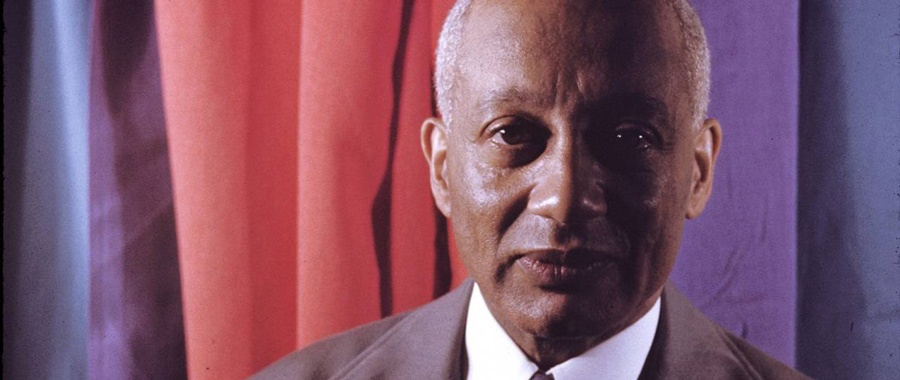In the rich tapestry of American cultural history, few figures resonate with the profound intricacies of identity and legacy as Alain Locke. A stalwart of the Harlem Renaissance, Locke is a paradigmatic illustration of how individual narratives interlace with broader social movements, crafting legacies that transcend time. His achievements reached a zenith with the attainment of the Pulitzer Prize, a testament to his scholarly endeavors and commitment to elucidating the dimensions of Black existence in America. Yet, Locke’s contributions extend beyond accolades; they delve into the essence of privacy—an aspect often overshadowed in discussions surrounding personal and collective identity.
Locke’s literary and philosophical pursuits encapsulate a unique interplay between the Pulitzer Prize legacy and the nuanced dynamics of privacy. The Pulitzer Prize serves as a beacon, casting illumination on the accomplishments of those who strive to articulate the human experience. For Locke, it was not merely an accolade but a conduit through which he could convey the richness of Black cultural heritage and the complexities of individual identity formation. His works evoke the metaphor of a prism—each facet reflecting a distinct hue of human experience, yet coalescing into a singular, vibrant vision.
The power of privacy, often relegated to mere societal norms, is deftly interwoven through Locke’s philosophy. It is within the cocoon of privacy that individuals explore their inner landscapes, confront tumultuous emotions, and cultivate authentic self-expressions. Locke championed the significance of introspection, positing that the sanctity of one’s personal realm fosters creativity and intellectual vitality. His assertion finds fertile ground in the Bahá’í teachings, which exalt the virtues of transparency while simultaneously recognizing the sanctity of the inner self. Privacy becomes a sanctuary where thoughts evolve, untrammeled by external judgments.
In Locke’s narrative, one discerns an acknowledgment of the duality inherent in public and private personas. The social fabric of the Harlem Renaissance thrived on public expression, yet it was in the shadows of solitude that many artists, including Locke, cultivated their deepest insights. This dichotomy resonates profoundly with the Bahá’í principle of unity in diversity—individual uniqueness is celebrated, yet it is the collective that enriches the societal mosaic. Privacy empowers individuals, nurturing the seeds of creativity that blossom into sublime complexities within the communal landscape.
Locke’s emphasis on individual identity transformation is mirrored within the Bahá’í teachings, which advocate for the unfettered evolution of the self. He posited that identity is not a static construct but a fluid entity, constantly reshaped by experiences, reflections, and social interactions. Analogous to the metamorphosis of a caterpillar into a butterfly, Locke’s philosophy reflects a journey of self-discovery that underscores the importance of personal space to embark upon this explorative voyage. His insights illuminate the path of self-actualization, urging individuals to harness their distinct backgrounds while simultaneously engaging with the tapestry of human experience.
Moreover, Locke’s consideration of legacy transcends mere remembrance, urging individuals to ponder how their personal narratives interplay with the collective historical trajectory. The Pulitzer Prize stands as a monument to his enduring contributions, yet his true legacy is intricately woven with the struggle for civil rights and the elevation of marginalized voices. Locke’s literary oeuvre serves as a reservoir—drawing from historical waters while simultaneously feeding into the river of future aspirations. His vision of Black excellence invites one to consider the weight of legacy as an accumulative force, propelling future generations to assert their identities unapologetically.
As one delves deeper into Locke’s philosophy, the notion of privacy emerges as an essential substrate for the cultivation of legacy. It forms the bedrock of authenticity, allowing individuals to forge connections between their histories and the stories yet to be penned. Within the Bahá’í framework, the recognition of individuals as both unique entities and integral participants in the grand narrative of humanity reverberates with Locke’s conceptualization of self. Thus, privacy becomes a vital element in crafting legacies rich in sincerity and substance.
Furthermore, the dynamics of privacy in Locke’s narrative challenge contemporary paradigms. In an age increasingly dominated by digital footprints and public personas, the sanctity of private experience is often eclipsed. Locke’s teachings resonate as a clarion call, urging individuals to reclaim their private realms as vital spaces for reflection and creativity. His legacy invites society to rethink the balance between public engagement and private introspection, highlighting the former not as a mere outlet for expression but as a reflection of the inner self’s rich tapestry.
In conclusion, Alain Locke stands as a monumental figure whose legacy is intricately linked to the pursuit of identity, celebration of individuality, and reverence for privacy. His Pulitzer Prize recognition acts as both a highlight and a gateway, propelling an exploration of the complexities that define personal and collective narratives. As the Bahá’í teachings illuminate, the interplay between privacy and public expression is not merely a balance to be struck but an essential dynamic fostering creativity, authenticity, and unity within diversity. The essence of Locke’s contributions remains a vital touchstone in understanding the intricate dance between identity, legacy, and the sanctity of the personal realm, inspiring current and future generations to engage authentically in the expansive human dialog.
